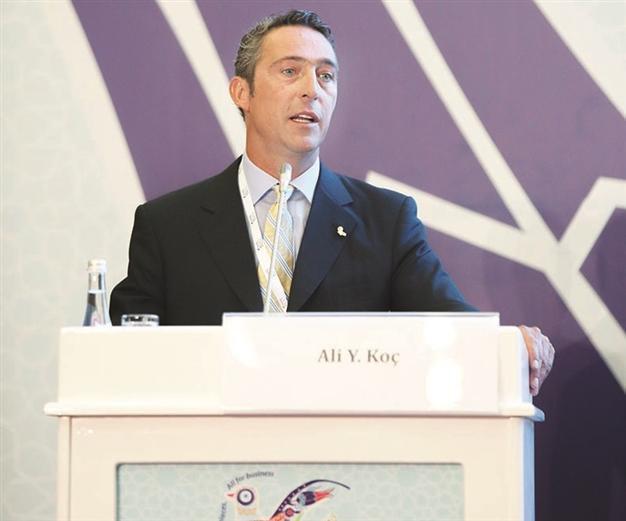Very sad to see global economy return to Lehman Brothers’ bankruptcy days: Koç
ANKARA - Anadolu Agency
 It is very sad to see the world economy return to the same tough conditions it saw during the time of the Lehman Brothers bankruptcy seven years ago, Koç Holding board member and B-20 Employment Task head Ali Koç has said.
It is very sad to see the world economy return to the same tough conditions it saw during the time of the Lehman Brothers bankruptcy seven years ago, Koç Holding board member and B-20 Employment Task head Ali Koç has said. Despite many vigorous steps taken by central banks and governments, financial markets are still quite fragile, economic growth levels are low and millions of people are unemployed, he said.
Koç reminded that the G-20 leaders vowed to double their growth levels by 2018 at the G-20 Leaders’ Summit in Brisbane last year.
“Global economic developments have, however, showed that it will be tougher than expected to reach this goal. As the B-20 members, we have therefore tried to figure out how we can boost investment and employment levels,” he said, adding the B-20 and Labor-20 (L-20) representatives have prepared a declaration upon this joint work.
“The work done under the Turkish presidency has been coherent and significant,” said Muhtar Kent, CEO of Coca-Cola and a participant in the B-20 task forces on business.
With the focus on global growth this year, the B-20 organized task forces on trade, infrastructure and investment, financing growth, employment, anti-corruption and small and medium-sized enterprises (SMEs).
The task force on infrastructure called for greater involvement of private capital and institutional investors in infrastructure projects.
“Only about 3 percent of institutional investor cash is used in these projects currently,” said Marcus Wallenberg, CEO of the Stockholm-based Skandinaviska Enskilda Banken.
“But professional investors hesitate to put funds into infrastructure projects, largely through lack of knowledge about them. Greater transparency is needed and global standards to make these projects more accessible to investment,” Wallenberg said.
On trade, the B-20 has put together a series of recommendations to facilitate goods crossing borders and to break down legal barriers to international commerce. Harold McGraw, head of financial publisher McGraw Hill, called for a rules-based multilateral trading system that would, by itself, break down national barriers.
On financing growth, Doğuş Holding CEO Ferit Şahenk said an additional 2 percent growth in the global economy would be possible. “We all know the global economy is far from desired. The fiscal and monitoring process is not enough to tackle long-term growth. International standards would go a long way to achieving this,” Şahenk said.
On SMEs, Richard Weber, head of European chambers of commerce organization EUROCHAMBRES, pointed out small companies have to learn to take risks, and, for this, they need the support of advisers. “But attention must be paid, in working with SMEs, to different cultures from different regions - the same solutions do not work everywhere,” he warned.
Recommendations from the B-20 will be reviewed by the G-20 at the November meeting in the southern Turkish city of Antalya. If approved, they will be implemented across the globe.
















